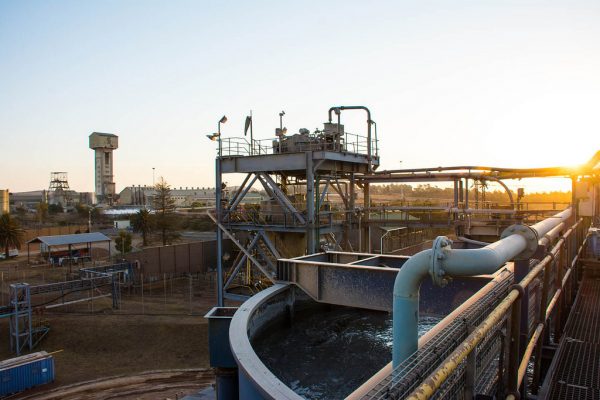The final demise of South Africa’s gold industry came a step nearer on Wednesday with the announcement that Sibanye Gold Ltd. won’t extend the life of Driefontein, once the biggest mine on the continent.
Last year the mine, more than 2 miles (3,200 meters) deep, produced about 300,000 ounces of gold, just a fifth of its peak output two decades ago. Now Sibanye will wind down Driefontein’s operations within 10 years, with plans to cut thousands of jobs as it shuts unprofitable shafts.
Driefontein used to be the heartbeat of mining, but that was many many years ago
South Africa’s gold industry employs just over 100,000 people, less than a fifth of the number that used to drive the apartheid economy. With most of the nation’s gold operations unprofitable, more job cuts are inevitable. Moreover, the geological challenges faced by the world’s deepest mines saw fatalities at Sibanye’s gold operations soar last year.
“Driefontein used to be the heartbeat of mining, but that was many many years ago,” said Rene Hochreiter, an analyst at Noah Capital Markets Ltd. in Johannesburg. “Below 3,000 meters you are not going to make money and you probably end up killing a lot of people.”
Sibanye Chief Executive Officer Neal Froneman said the investment climate in South Africa isn’t “conducive” to spending billions of rand to deepen Driefontein further and extend its life.
Mined out
“To all intents and purposes, Driefontein is mined out,” said Froneman, who will consider opportunities to expand in gold outside South Africa.
The mine, acquired from Gold Fields Ltd. in 2013, has also been crippled by a wage strike over the past four months.
“It came as a bit of a surprise, I didn’t anticipate Driefontein nearing its end,” said Bernard Swanepoel, a former CEO of Harmony Gold Mining Co. “It’s an old lady, a grand old lady, it’s been around for a long time.”_Bloomberg News





